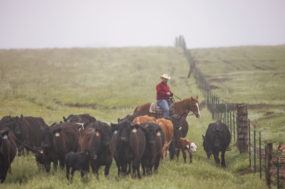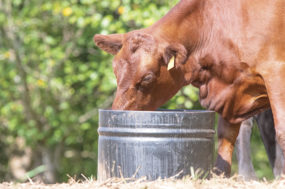The WTO appeals body ruled May 18 that the U.S., under COOL laws, imposes excessive burdens upon Canada and Mexico in its documentation and verification of meat products raised, slaughtered and processed in those countries. The WTO found those provisions, which came in the 2002 and 2008 farm bills to help consumers know origins of meat purchases, violated prior trade agreements and placed financial burdens upon livestock industries.
Armed with the latest WTO ruling, Canada and Mexico began following through on their threats to place retaliatory tariffs on American products going into their countries. Trade reps for those nations said retaliatory tariffs could be as high as $2 billion.
A study from the USDA’s chief economist found that COOL regulations failed to deliver “measured economic benefits” to consumers, while costing producers and packers $2.6 billion for all the commodities it covers. The study found no measureable increase in consumer demand due to COOL information.
The WTO ruling is the fourth decision against COOL. In each previous case, the U.S. appealed after modifying some portions of its law to comply, but the WTO has ruled in each appeal that its policy discriminates against existing trade rules with Canada and Mexico.
The ruling led members of Congress to move on to the debate of whether to repeal COOL. On May 20, the House Agriculture Committee voted 38-6 to drop the law in its restrictions for verification of beef, pork and chicken. The Senate Agriculture Committee has not yet drafted its own bill for repeal.
"We cannot sit back and let American businesses be held hostage to the desires of a small minority who refuse to acknowledge that the battle is lost," says Committee Chairman Mike Conaway, R-Texas.
Agricultural groups remain split on the issue of whether retaining COOL laws will erode relations between two of the country’s biggest trade partners. The National Cattlemen’s Beef Association, National Pork Producers Council, American Meat Institute and North American Meat Association have all called upon Congress to rescind COOL, while the National Farmers Union and U.S. Cattlemen’s Association remain in favor of the law.
The American Farm Bureau Federation (ABPF) joined those calling for a repeal of COOL on May 27.
“While we were hopeful that WTO would have found COOL to be legal, it is now clear that we are far better off with no mandatory labeling for beef, pork and chicken, which should end threats of retaliation by our two closest trading partners,” says Bob Stallman, president of ABPF.
“Congress has got to fix this problem,” says Secretary of Agriculture Tom Vilsack. “They either have to repeal COOL or they have to modify and amend it to create some sort of generic label. It’s up to Congress to figure out what to do. We have tried several ways to do this, and each time WTO has indicated that we haven’t learned how to do it right.”
But the COOL discussion in Congress is also colliding with the ongoing debate over trade promotion authority sought by the Obama administration. Trade promotion authority – called fast track authority – allows a president to craft trade agreements without any amendments from Congress, but it still requires final approval on an up-down vote from Congress. Fast track has been in effect since 1974, but the power is reviewed by Congress regularly.
Democrats and some Republicans argue the WTO’s decision undermines Obama’s argument for the pending Trans-Pacific Partnership, namely that it will not undermine U.S. laws on trade.
Jean Halloran, director of food policy initiative for the Consumers Union, says that criticism holds up under WTO’s latest action.
“Clearly consumer protection is at risk,” Halloran said to the Bozeman Daily Chronicle. “Congress should not cave in and repeal COOL. And Congress should not give the administration the power to sign us up to more of these agreements when they can do such damage to consumer protection.” ![]()








